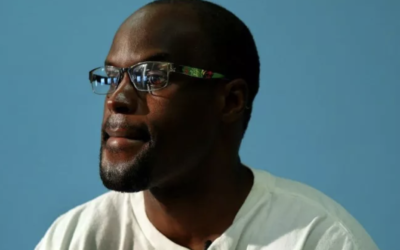After a while, even the horrid conditions of prison become normal to its occupants. Waking up everyday in a concrete cell, being told when you can shower, use the phone, or even use the bathroom eventually fall into place as routine. No big deal — it just is. I suppose as humans, this is an essential feature and component of our survivability. We must and do adapt to even life’s most trying and tumultuous circumstances. Of course this is usually always preceded by the five phases of grief/loss (denial, anger, bargaining, depression, and finally acceptance) that we undergo; but we do inevitably reach that final phase of acceptance at some point. After which, things settle and become normal again. Yet, the most dreaded, sinking feeling that I experienced for the third time in my incarceration last Thursday is something that I will never adapt to. It counters the most fundamental needs of humanity and leaves a scar that, unlike those made of flesh, don’t fade with time.
When I called home last Thursday (April 21st), I was first greeted with “Happy Birthday,” by none other than my twin brother. Yet, his lackluster tone gave me the sense that something was askew, so I inquired if everything was alright. He paused and then painstakingly told me, “Well, no, it’s not alright, bro . . . [our sister] has passed away.” I hadn’t felt that overwhelming wave of numbness sweep over my body since 2008 when the news of my father’s passing was delivered to me by a stoic Captain at the prison. And now here it was again. Shock, confusion, and devastation paralyzed my mind and body in that moment, and all I could physically muster was an agonizing cry into the phone: “Oh my God! No! No! Oh my God!” My brother echoed my anguished cries with his own and we “embraced” each other over the phone just as we had in 2006 when we lost Mom, and 2008 when we lost Dad.
In the days since that fateful Thursday afternoon, all I can think of is how isolated I feel from my family. I am unable to be a source of comfort for them and they for me because I am locked in a cage many miles away. I cannot hug them nor they me, cry on each others’ shoulders and whisper, “It’s going to be okay; we’ll get through this too,” because I am confined to a six-by-nine concrete cell for the next five years. Our physical embraces will just have to wait. Not being able to grieve in the aftermath of such a devastating loss is something that I will never adapt to. It is by far the most difficult part of this experience.
When a close death occurs, it is our innate human instinct and desire to surround ourselves with those who most intimately share our pain and turmoil. It is this profound comfort that soothes our wounds, at least enough to allow us to sleep that night and wake up the next day to do it all over again. But I have been deprived of this fundamental need in my time of immense loss. Instead, I get 30 minutes on the phone to convey how hurt I am and listen to my family’s grief. Needless to say, I hang up feeling not as though a cathartic exchange has just taken place, but rather an inadequate one — one that leaves a greater void than the one I had when the phone call started. One that leaves me yearning for more.
On one hand I am extremely crushed and heartbroken that I obviously cannot physically be with my family during this time of extraordinary grief; yet, I surprisingly feel a sense of solace in knowing that I am still human; that I still possess this basic human quality of desiring close intimacy and compassion with those I love the most in this world during a time of mental and emotional turmoil. It is comforting, in a sense, to know that the cold confines of an institution for the past twelve and half years has not stripped me of my fundamental human nature — the ability to feel. Perhaps this is also why being forbidden to grieve with my family during this time is something I will never adapt to. And this unfortunate reality will forever remain the hardest part of prison for me.






POWERFUL stuff. It helps others to realize what incarceration is really like. I wish Colorado had educational programs like the ones you got to take advantage of. It just seems to make more sense than seemingly endless existence and survival in a hostile environment, then abrupt release to society. No wonder we have such high recidivism.
So very sorry for your loss. You haven’t lost the ability to feel though and to be grateful for that is truly remarkable. God Bless
Those who glibly state that prison time is easy have never considered that this scenario happens to so many people we incarcerate. Thank you for sharing that and enlightening us.